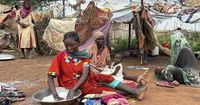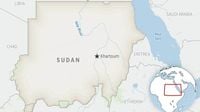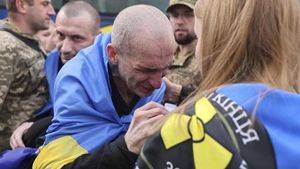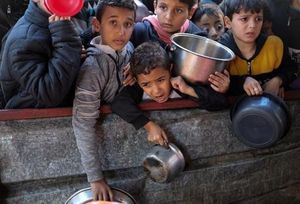Sudan’s Darfur region has once again been plunged into tragedy, with reports confirming that the paramilitary Rapid Support Forces (RSF) launched a deadly attack on August 24, 2025, targeting civilians on a road connecting el-Fasher to Tweila. According to the Sudan Doctors Network, at least 13 people lost their lives in this assault, most of them women and children. The victims included five children, four women, and four elderly individuals, underscoring the vulnerability of those caught in the crossfire of Sudan’s ongoing civil war.
The Sudan Doctors Network, a group of professionals closely monitoring the conflict, did not mince words in their condemnation. They described the attack as “another episode in the ongoing campaign of ethnic cleansing and genocide being perpetrated by the RSF against unarmed civilians in Darfur.” Their statement, echoed across multiple outlets including the Associated Press and Al Jazeera, paints a grim picture of the situation on the ground. The medical group claims the violence is ethnically motivated, targeting specific groups in what they allege is a systematic attempt to eradicate them from the region.
Tragically, this attack was not an isolated incident. Just one day earlier, on August 23, the RSF shelled a hospital in the besieged city of el-Fasher, North Darfur. The shelling wounded a healthcare worker and six patients, among them a child and a pregnant woman, according to the Sudan Doctors Network. The hospital strike further highlights the indiscriminate nature of the violence and the immense risks faced by both civilians and those trying to care for them.
These attacks are part of a broader RSF campaign to seize control of el-Fasher, which remains the Sudanese army’s last stronghold in Darfur. The strategic importance of the city cannot be overstated. For more than a year, the RSF has bombarded el-Fasher and, as noted by Australian Associated Press, imposed a total blockade last month, trapping hundreds of thousands of people and cutting off vital supplies.
The United Nations High Commissioner for Human Rights has documented at least 89 civilian deaths at the hands of the RSF in a 10-day period this month alone. Of these, 16 were “summarily executed” in el-Fasher and the nearby Abu Shouk displacement camp. UN spokesperson Jeremy Laurence described the attacks as “unacceptable” and said they “deepen our concerns about ethnically motivated violence.” He added that among the dead were civilians from the African Zaghawa and Berti tribes, groups that have historically faced persecution in Darfur.
The humanitarian toll of Sudan’s civil war is staggering. Since violence erupted in April 2023, tens of thousands have been killed, according to the United Nations and corroborated by multiple news organizations. Over 14 million people have been displaced from their homes, creating one of the world’s largest internal displacement crises. The fighting has also pushed parts of Sudan into famine, with international agencies warning of widespread starvation if the violence continues unchecked.
Compounding the misery, the World Health Organization has reported a cholera outbreak in regions like el-Fasher, with all 18 states in Sudan now recording cases. The convergence of armed conflict, famine, and disease has created what the UN calls a “severe humanitarian crisis.”
The origins of this devastating conflict can be traced back to April 2023, when simmering tensions between Sudan’s military and the RSF exploded into open warfare. The RSF, which grew out of the notorious Janjaweed militias implicated in earlier atrocities in Darfur, has since been accused of a litany of crimes, including mass murder and rape. The International Criminal Court is currently investigating these acts as potential war crimes and crimes against humanity.
According to Al Jazeera, the RSF’s campaign has been marked by “brutal” attacks, particularly in Darfur. Between August 11 and August 20, at least 89 people were killed in el-Fasher and the Abu Shouk displacement camp. Of these, 57 died in a single day—August 11—while another 32 were killed in the following days, including the 16 summary executions. The UN fears the actual death toll may be even higher, given the chaos and lack of access for humanitarian workers.
The Sudanese Doctors Network and other observers have repeatedly called for international intervention. “How long can the world remain silent?” one report asks, echoing the growing frustration of those on the ground. The RSF’s actions, they argue, constitute a systematic campaign of ethnic cleansing, and urgent action is needed to protect the most vulnerable.
The RSF has so far not responded to requests for comment regarding the latest killings or the hospital shelling. This silence has only fueled concerns about impunity and the lack of accountability for grave abuses. Meanwhile, the Sudanese military, fighting to maintain its last foothold in Darfur, has struggled to protect civilians amid the RSF’s relentless advance.
As the violence continues, the international response has been criticized as inadequate. Human rights organizations and international agencies have called for increased humanitarian access, protection for civilians, and accountability for those responsible for atrocities. The International Criminal Court’s investigations, while significant, are only the first step in what many hope will be a broader effort to bring justice to Sudan’s long-suffering people.
Amidst the chaos, ordinary Sudanese are left to pick up the pieces. Families have been torn apart, entire communities uprooted, and the basic fabric of society shredded by violence and displacement. The road from el-Fasher to Tweila, once a lifeline for local communities, has now become a symbol of the dangers faced by those simply trying to survive.
As the world watches, the question remains: will the international community step up to protect Sudan’s civilians and help bring an end to the cycle of violence? For now, the people of Darfur—and Sudan as a whole—continue to endure unimaginable hardship, hoping that justice and peace will someday prevail.





